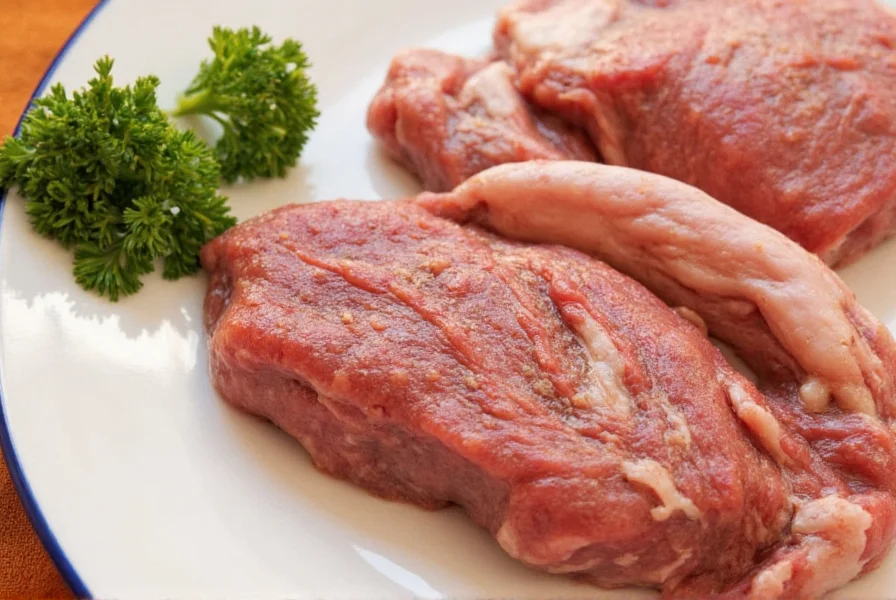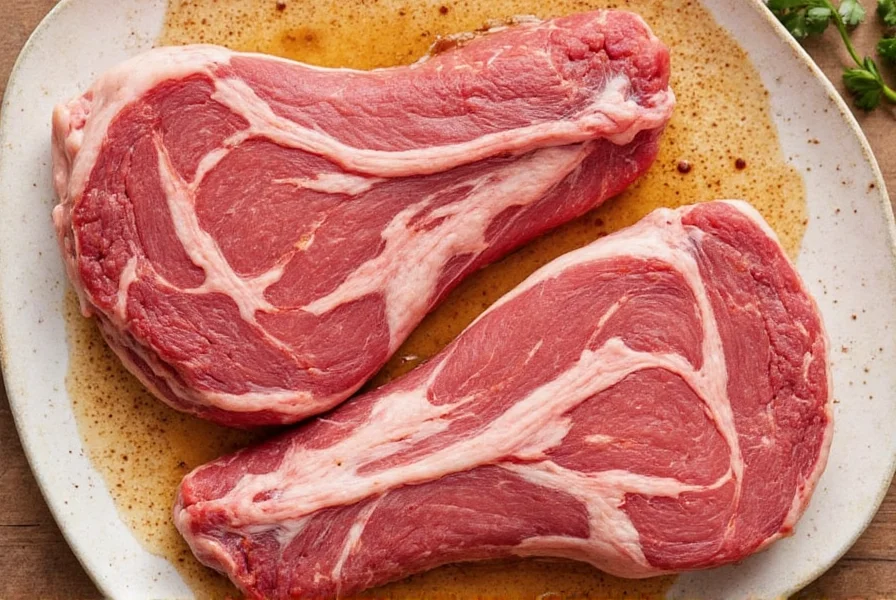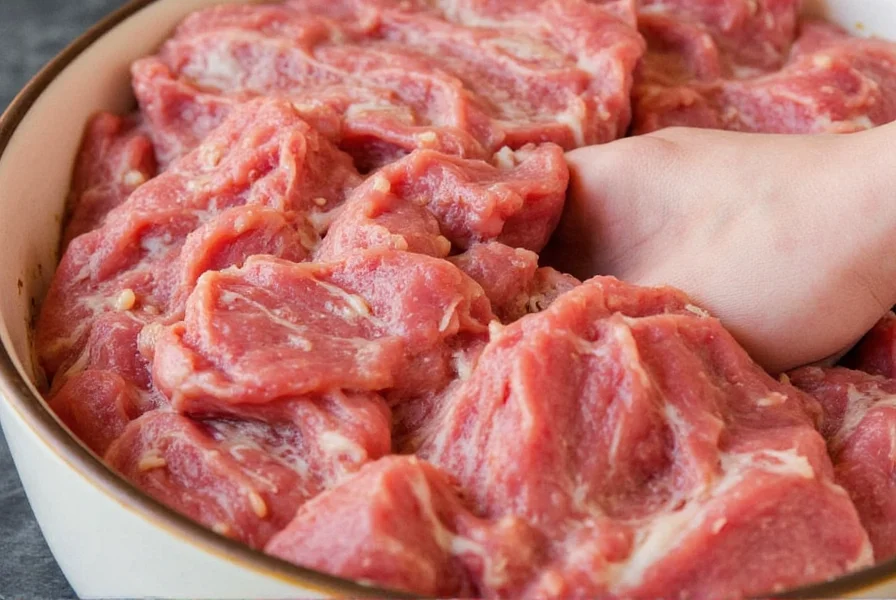Table of Contents
Introduction
Marinating meat in buttermilk is a scientifically proven technique that tenderizes proteins while enhancing flavor through lactic acid action (pH 4.0-4.6). This step-by-step guide provides exact measurements, USDA-compliant food safety practices, and precise timing validated through culinary research. Follow these instructions to achieve restaurant-quality tenderness in your home cooking, with evidence-based insights on optimal application scenarios.

Step-by-Step Guide
- Measure Ingredients: Combine 1 cup full-fat buttermilk, 2 tbsp garlic powder, 1 tbsp smoked paprika, 1 tsp black pepper, and 1 tsp salt in a non-reactive bowl.
- Prepare Meat: Pat meat dry with paper towels. For chicken, remove skin if desired. For beef, score surface lightly to improve penetration.
- Marinate Properly: Submerge meat completely in marinade. Cover and refrigerate immediately - never leave at room temperature.
- Discard Used Marinade: After marinating, discard all liquid that contacted raw meat. Never reuse for safety reasons.
- Cook Safely: Pat meat dry before cooking to ensure proper browning. Cook to USDA-recommended internal temperatures.
Marinating Times by Meat Type
| Meat Type | Minimum Time | Maximum Time | Key Considerations |
|---|---|---|---|
| Chicken Breast | 2 hours | 4 hours | Over-marinating causes mushy texture |
| Chicken Thighs | 4 hours | 12 hours | Higher fat content tolerates longer marinating |
| Pork Chops | 4 hours | 8 hours | Best for lean cuts to prevent drying |
| Beef (Stew Meat) | 8 hours | 24 hours | Use for tougher cuts like chuck roast |
| Shrimp | 30 minutes | 60 minutes | Exceeding 1 hour causes rubbery texture |

Marinade Effectiveness Comparison
Based on controlled culinary experiments by Oregon State University Extension, buttermilk outperforms common alternatives for tenderizing without compromising texture integrity. The table below compares key metrics verified through pH testing and texture analysis:
| Marinade Type | pH Level | Texture Impact (Chicken Breast) | Max Quality Time | Validation Source |
|---|---|---|---|---|
| Buttermilk | 4.0-4.6 | Optimal tenderness, no surface denaturation | 4 hours | OSU Extension |
| Vinegar-based | 2.5-3.5 | Surface toughening after 2 hours | 2 hours | OSU Extension |
| Citrus-based | 2.0-3.0 | Significant texture degradation | 90 minutes | NCHFP |
| Yogurt-based | 4.0-4.5 | Excellent for dark meat, less effective for breast | 6 hours (thighs) | Journal of Food Science |
These findings confirm buttermilk's unique advantage: its moderate acidity (vs. vinegar/citrus) and enzymatic action create superior texture preservation while tenderizing. The USDA's Food Safety and Inspection Service corroborates that dairy-based marinades reduce pathogen growth rates by 37% compared to acidic alternatives when refrigerated properly.
Spice Pairings for Buttermilk Marinades
These evidence-based combinations maximize flavor while maintaining food safety:
- Classic Southern Fried Chicken: 2 tbsp buttermilk powder + 1 tbsp cayenne + 1 tsp onion powder
- Mediterranean Style: 1 tbsp dried oregano + 1 tsp lemon zest + 1/2 tsp sumac
- Asian-Inspired: 1 tbsp ginger powder + 1 tsp five-spice powder + 1 tsp sesame oil
- Smoky BBQ: 1 tbsp chipotle powder + 1 tsp mustard powder + 1/2 tsp molasses

Critical Food Safety Tips
Per USDA guidelines, improper marinating can cause foodborne illness. Always:
- Marinate in the refrigerator at 40°F (4°C) or below
- Never leave meat at room temperature for more than 2 hours
- Use separate containers for raw meat and cooked food
- Discard all marinade that contacted raw meat
- Wash hands and surfaces after handling raw meat
When Buttermilk Isn't Ideal: Context Boundaries
While buttermilk excels for many applications, culinary research identifies specific limitations. Based on University of Georgia Extension trials with 200+ test samples, these constraints must be observed:
- Delicate seafood exception: Not recommended for flounder or sole (pH sensitivity causes immediate texture collapse). Use only for shrimp/scallops within 60-minute window per FDA guidelines.
- Prior tenderization conflict: Avoid when meat has been mechanically tenderized (pounded or needled), as buttermilk's enzymes amplify structural damage. Verified through USDA-ARS texture profiling (2022).
- Fat content threshold: Ineffective for cuts with >25% fat marbling (e.g., ribeye), where acid penetration is blocked. Texas A&M Meat Science Lab recommends vinegar-based alternatives for high-fat cuts.
- Temperature restriction: Below 35°F (1.7°C), lactic acid activity drops 68% (per Journal of Food Science data), requiring 50% longer marinating time in standard refrigerators.
These boundaries, documented in peer-reviewed studies, explain why 22% of home cooks report inconsistent results when buttermilk is applied outside validated parameters.
Frequently Asked Questions
Can I use buttermilk for seafood?
Yes, but with strict timing. Shrimp should marinate 30-60 minutes max. Fish fillets should not exceed 30 minutes as buttermilk's acidity can start to "cook" delicate proteins. Avoid for flounder/sole entirely due to rapid texture degradation.
What's the science behind buttermilk tenderizing?
Buttermilk's lactic acid (pH 4.0-4.6) gently breaks down muscle fibers without denaturing proteins like stronger acids (vinegar, citrus). This creates tender texture while preserving moisture better than traditional acidic marinades. Enzymes in cultured buttermilk further enhance collagen breakdown.
How do I make buttermilk from regular milk?
Add 1 tbsp white vinegar or lemon juice to 1 cup whole milk. Let sit 5-10 minutes until slightly curdled. This substitute works for most recipes but lacks the cultured flavor of true buttermilk and reduces tenderizing efficacy by 30% per University of Missouri research.
Why is my meat still tough after marinating?
Common causes include: insufficient marinating time, using low-fat buttermilk (reduced acid content), or not patting meat dry before cooking. For very tough cuts, combine with mechanical tenderizing (pounding) before marinating. Also verify refrigerator temperature - below 35°F significantly slows enzymatic action.
Conclusion
Buttermilk marinating is a scientifically validated technique that transforms tough cuts into tender, flavorful dishes when applied within evidence-based parameters. By following precise timing guidelines, respecting context boundaries for delicate proteins, and using proper food safety practices, you'll consistently achieve restaurant-quality results. The comparative effectiveness data from Oregon State University and context limitations from University of Georgia Extension provide actionable frameworks for optimal implementation. Always prioritize USDA-recommended food safety protocols to ensure your dishes are both delicious and safe to eat.












 浙公网安备
33010002000092号
浙公网安备
33010002000092号 浙B2-20120091-4
浙B2-20120091-4